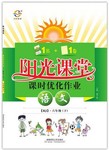题目内容
Mary got so angry that she _________ out of the room.
A. sneaked B. stormed C. slipped D. struggled
B

 阳光课堂课时优化作业系列答案
阳光课堂课时优化作业系列答案Each of us fails from time to time.If we are wise, we accept these failures as a 1 part of the learning process.But all too often as parents and teachers we disallow this 2 right to our children.
When I see a child 3 to this kind of pressure, I think of Donnie.
Donnie was my youngest third grader.His 4 of failure kept him from classroom games that other children enjoyed.He 5 answered questions — he might be wrong.
I tried my best to build his 6.But nothing changed until midterm, when Mary Anne, a student teacher, was assigned (安排)to our classroom.
She was young and pretty, and she loved children.My pupils, Donnie included,7 her.
One morning, we were working math problems at the chalkboard.Donnie had 8 the problems with painstaking neatness.Pleased with his progress, I 9 the children with Mary Anne and went for art materials.When I returned, Donnie was in 10 .He’d missed the third problem.
My student teacher looked at me in despair.Suddenly her face 11.From the desk we shared, she got a container filled with pencils.
"Look, Donnie," she said, kneeling beside him and gently 12 the tear stained face from his arms."I’ve got something to13 you." She removed the pencils, one at a time, and placed them on his desk.
"See these 14 , Donnie," she continued."They belong to Mrs. Lindstrom and me.See how the erasers are 15 ? That’s because we make mistakes too.But we erase the mistakes and try again.That’s what you 16 learn to do, too."
She kissed him and stood up."Here," she said, "I’ll leave one of these pencils on 17 desk so you’ll remember that everybody makes mistakes, 18 teachers." Donnie looked up with love in his eyes and a smile.
The pencil became Donnie’s 19 possession.That, together with Mary Anne’s frequent encouragement, gradually 20 him that it’s all right to make mistakes — as long as you erase them and try again.
|
2.A.correct B.same C.important D.natural
3.A.suffering B.object C.fall D.subject
4.A.fear B.lesson C.chance D.sense
5.A.always B.often C.never D.seldom
6.A.self-protection B.self-improvement C.self-confidence D.self-learning
7.A.respected B.disliked C.avoided D.mined
8.A.worked out B.copied C.gone over D.leaned
9.A.left B.offered C.missed D.parted
10.A.surprise B.astonishment C.anger D.tears
11.A.darkened B.brightened C.pulled D.loosened
12.A.lifting B.picking C.holding D.pushing
13.A.help B.show C.reward D.promise
14.A.pencils B.mistakes C.marks D.containers
15.A.used B.built C.worn D.damaged
16.A.may B.must C.will D.can
17.A.my B.someone’s C.the teacher’s D.your
18.A.still B.also C.even D.not
19.A.prized B.own C.kept D.expected
20.A.warned B.informed C.persuaded D.reminded
I was a newcomer of Miss Burn’s seventh grade. Past“newcomer”experiences had been difficult, so I was
very anxious to fit in.
Lunchtime was a pleasant surprise when the girls all crowded around my table. Their chat was friendly, so
I began to relax. My new classmates filled me in on the school, the teachers and the other kids. it wasn’t long
before the class herd(书呆子)was pointed out to me: Mary Lou. Actually she called herself Mary Louise. A
formal, overmodest young girl with old-fashioned clothes, she wasn’t ugly—not even funny looking. Practical
shoes, long wool skirt and a blouse completed the image of a complete herd. The girls’ whispers got louder and
louder. Mary Lou didn’t notice this. After school, the girls invited me to join them in front of the school.
Arms wrapped around her backpack, Mary Lou came down the school steps. The taunting began—rude,
biting comments and disrespectful words from the girls. I paused, then joined right in. My force began to pick
up as I approached her, mean(卑劣)remarks falling from my lips. I even pulled the belt of her backpack and then
pushed her. The belt broke, Mary Lou fell. Everyone was laughing and patting me. I fit in. But I was not proud.
Something inside me hurt.
Mary Lou got up, gathered her books and—without a tear shed—off, she went. She held her head high as a
small trickle of blood ran down from her injured knee.
I turned to leave with my laughing friends and noticed a man standing beside his car. His skin, dark hair
and handsome features told me this was her father. Respectful of Mary Lou’s proud spirit, he remained still and
watched the lonely girl walk toward him. Only his eyes—shining with both grief and pride—followed. As I
passed, he looked at me in silence with burning tears that spoke to my shame and scolded my heart. He didn’t
speak a word.
No scolding from a teacher or a parent could linger(逗留)as much as that hurt in my heart from the day a
father’s eyes taught me kindness and strength and dignity. I never again joined the cruel herds. I never
again hurt someone for my own gain.
【小题1】 The writer felt she fit in when .
| A.she relaxed and talked with her new classmate | B.she became a leader of a school club |
| C.she picked a wing off a butterfly | D.others cheered for her after she treated Mary badly |
| A.Playing a game | B.Joining a club |
| C.Criticizing a person | D.Watching a movie |
| A.felt shameful and angry for his daughter | B.felt sad and proud for his daughter’s bravery |
| C.felt it necessary to teach the writer a lesson | D.felt it a pity that she didn’t fight back |
| A.was impressed by Mary’s calmness |
| B.was afraid to be scolded by Mary’s father |
| C.was sorry she hurt Mary’s knee |
| D.was aware that it was a shame to make fun of Mary |
| A.a rude girl who enjoys making fun of others |
| B.a clever girl who is good at making friends with others |
| C.a shy girl who isn’t good at communicating with others |
| D.a brave girl who is willing to correct her mistakes |